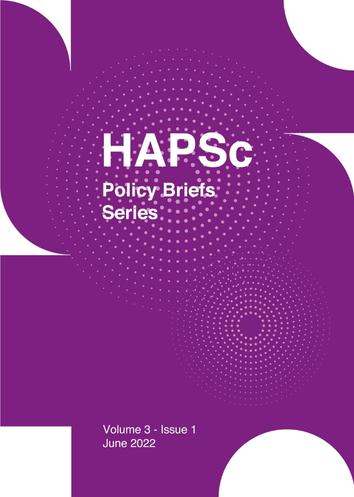Vocational Education and Training (VET) School Autonomy and Accountability: An analytical framework to contribute on moving forward VET policies and system in Ukraine
Abstract
In the last years, the evolution of decentralization in education in Ukraine, whether in the field of general education or vocational education and training (VET), has created effective political will and good synergies to address systemic reforms. However, the steadily decreasing number of VET institutions, students -and teachers- testify to the need to further reform the VET system. In the context of its effort to make the VET system both more attractive for students and the labour market through decentralization, Ukraine is facing the challenge of advancing VET school autonomy and accountability regarding managerial, financial and pedagogical functions. Increasing vocational school autonomy has been considered a key policy driver for decentralization process. School autonomy (managerial, financial, and pedagogical autonomy) might enable schools to support on such ambitious goal. The European Training Foundation (ETF) working very closely with Ministry of Education and Science of Ukraine (2019-2020) explored-in pilot basis-how to make possible moving towards VET school autonomy and accountability in Ukraine, from a governance perspective of the VET system. The analytical framework is a result of desk research, focus groups in three Ukrainian regions (Poltava, Kharkov and Odessa). Further, it helped to implement national survey-online- in 24 Ukrainian regions Key outcome is an Analytical Framework for VET School Autonomy and Accountability. The purpose of such tool has been to provide a clear description of the suggested distribution of tasks among stakeholders at the different levels of the education system (practitioners and policy makers). This might support the decision-making authorities, i. e. first and foremost the Ministry of Education and Science) in their efforts to advance VET school autonomy and accountability in Ukraine to advance in policy agendas and continue improving effectiveness -and efficiency of VET system.
Article Details
- How to Cite
-
Arribas, J. M. G. (2022). Vocational Education and Training (VET) School Autonomy and Accountability: An analytical framework to contribute on moving forward VET policies and system in Ukraine. HAPSc Policy Briefs Series, 3(1), 49–61. https://doi.org/10.12681/hapscpbs.30989
- Section
- Articles

This work is licensed under a Creative Commons Attribution 4.0 International License.
Authors retain copyright and grant the journal right of first publication with the work simultaneously licensed under a Creative Commons Attribution License that allows others to share the work with an acknowledgement of the work's authorship and initial publication in this journal.


